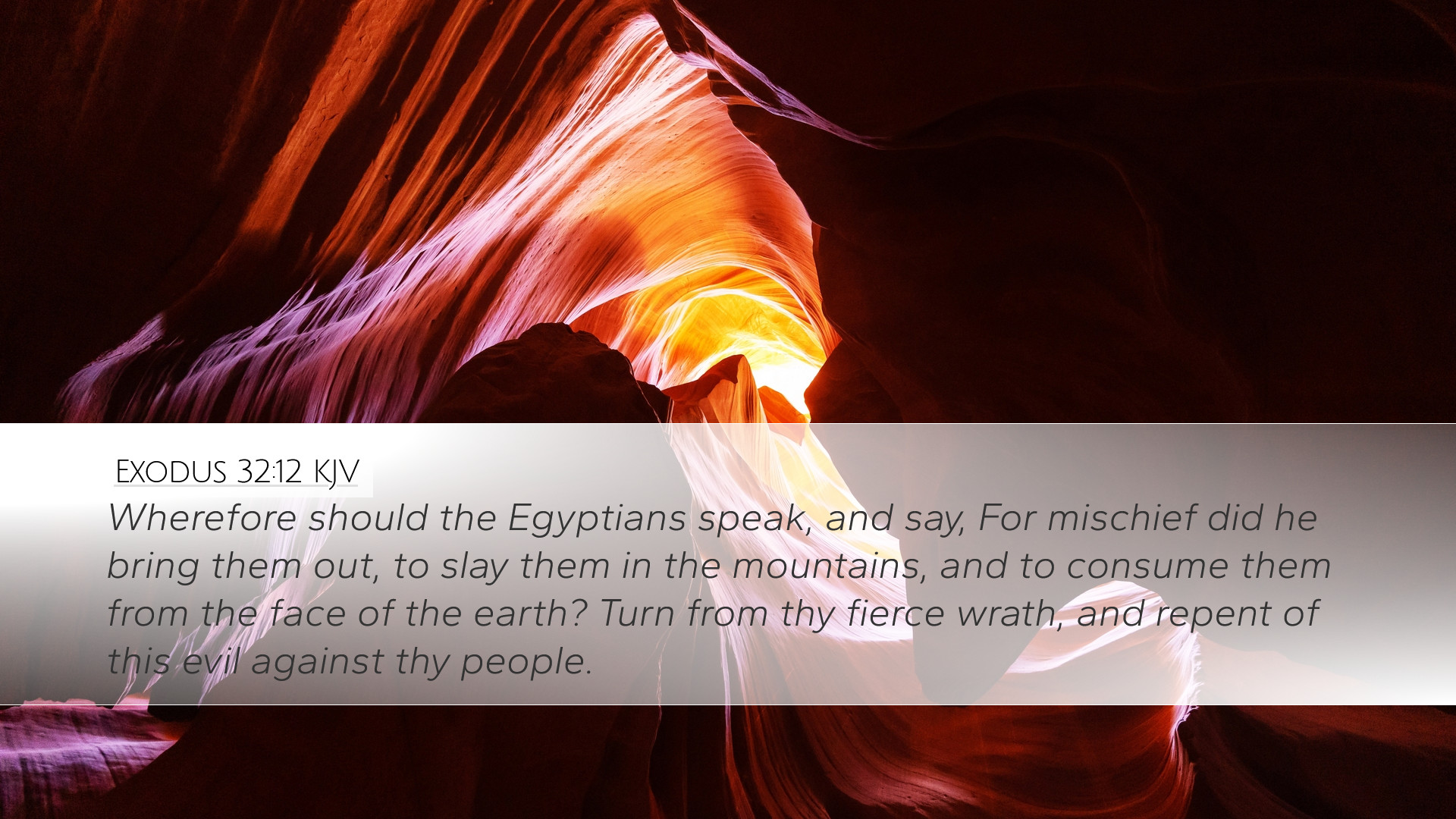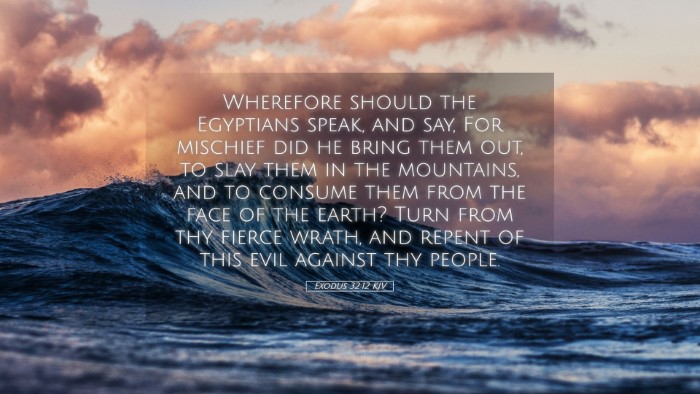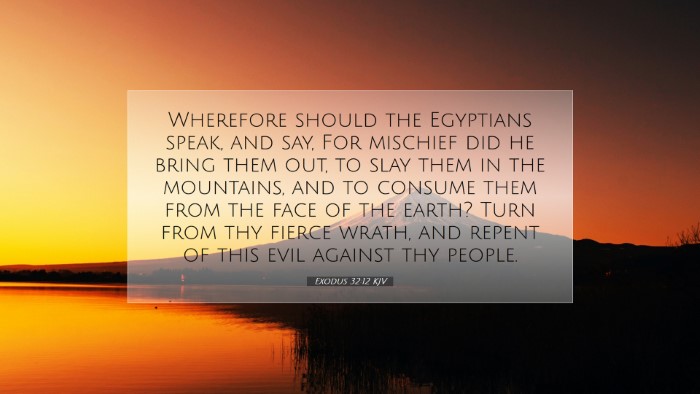Commentary on Exodus 32:12
Verse Text: "Wherefore should the Egyptians speak, and say, For mischief did he bring them out, to slay them in the mountains, and to consume them from the face of the earth? Turn from thy fierce wrath, and repent of this evil against thy people." (Exodus 32:12, KJV)
Contextual Overview
This verse occurs within the broader narrative of the Israelites' Exodus from Egypt and the events surrounding their worship of the golden calf. After having just received the Law, Moses ascended Mount Sinai. During his absence, the people, in their impatience, constructed an idol to worship. This chapter reveals the tension between God's judgment and mercy as exhibited through Moses' intercession.
The Appeal to God's Reputation
Moses’ appeal to God in Exodus 32:12 emphasizes the importance of divine reputation among the nations. As Matthew Henry notes, the concern expressed by Moses reflects an understanding that the Egyptians would view God's actions as malevolent if He destroyed His own people. Such a perception would not glorify God, but rather suggest that He was powerless to fulfill His promises.
Albert Barnes elaborates, explaining that Moses posits an argument based on the character of God. If God were to destroy the people, it would ultimately depict Him as one who leads His followers into destruction rather than salvation, thus undermining the narrative of redemption that the Exodus represents.
The Nature of God's Wrath
Another critical theme in this text is the nature of God’s wrath. Adam Clarke asserts that God’s fierce wrath reflects His holiness and righteous indignation towards sin. However, the intercession of Moses showcases the remarkable contrast found within God's character—His readiness to forgive. Clarke emphasizes that God's willingness to relent from judgment reveals His mercy, a recurring theme throughout Scripture.
Moses as Mediator
This verse also highlights Moses as a mediator between God and the people. As Barnes points out, Moses assumes a role akin to that of Christ, interceding for the people’s sake. The plea "Turn from thy fierce wrath" suggests a deep relational understanding that Moses shares with God, as well as an acknowledgment of God's capacity for mercy.
- Moses' Leadership: Moses has been prepared for this moment, illustrating his role as a leader who bears the burden of the people's sin.
- Intercessory Prayer: It serves as a model for intercessory prayer, showing how leaders can approach God with humility and boldness.
Theological Implications
The implications of Moses’ prayer in this verse extend into broader theological discussions, particularly concerning the attributes of God. The tension between justice and mercy is beautifully captured in Moses’ plea. It includes the reminder that while God is just, He is also rich in mercy, as articulated in other scriptural texts (e.g., Psalm 103:8-10).
Henry highlights that this narrative invites reflection on the consequences of community sin: the effects of idolatry are felt not just individually, but communally, which serves as a cautionary tale for the Church today.
Practical Application
For pastors, theologians, and students, Exodus 32:12 challenges contemporary believers to consider the implications of their actions in relation to God's character and mission in the world. As the Church engages with various cultural idols, it is vital to remember the importance of upholding God's reputation before the world. Does our conduct reflect His holiness and mercy?
- Self-Examination: This passage calls for self-examination concerning our own modern idols and how they might misrepresent God's character.
- Intercessory Role: It encourages the practice of intercessory prayer, acknowledging our role as mediators in a world that often turns away from God.
Conclusion
Exodus 32:12 serves not only as a powerful narrative moment but also as a theological reminder of the complexities of God's nature. Through this passage, Moses’ intercession offers insights into divine mercy, the weight of community sin, and the critical role of true leadership. As believers reflect on these lessons, they are encouraged to faithfully represent God's character in their lives and communities.


